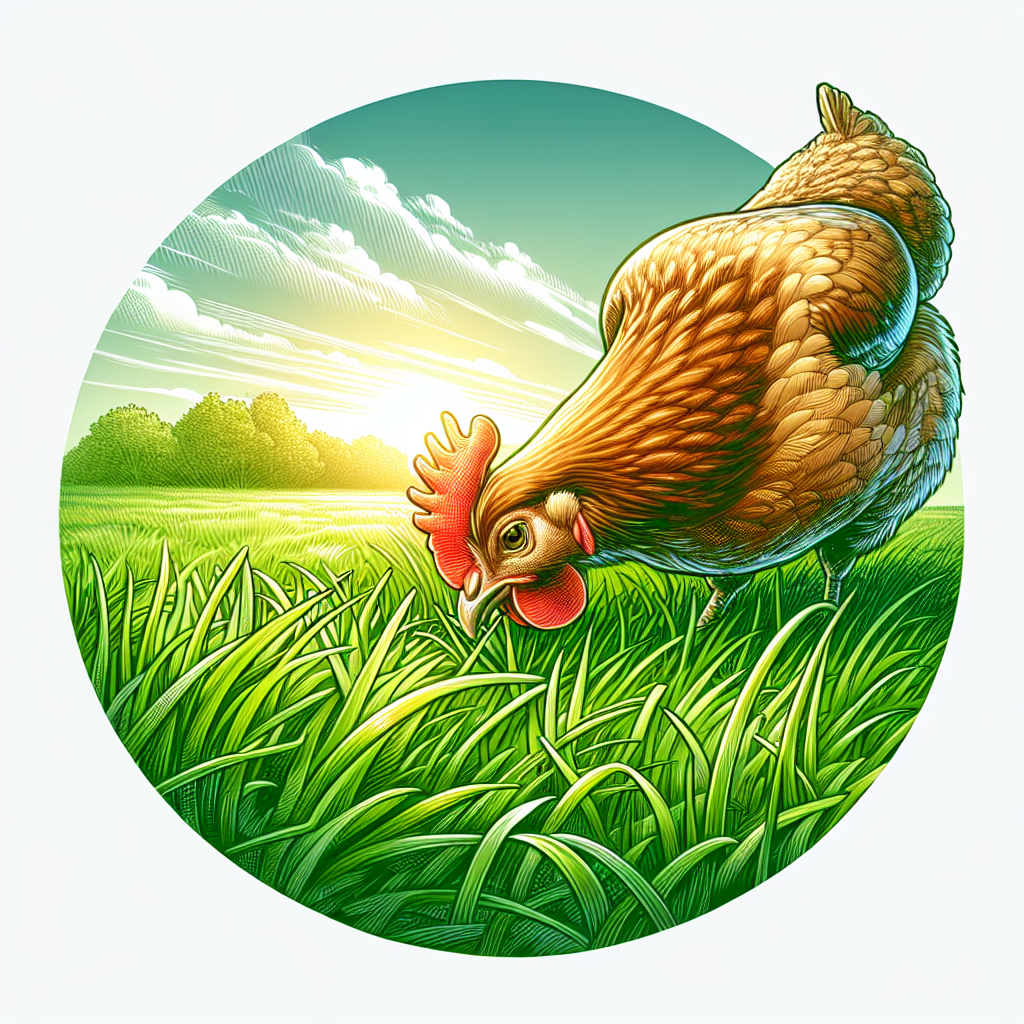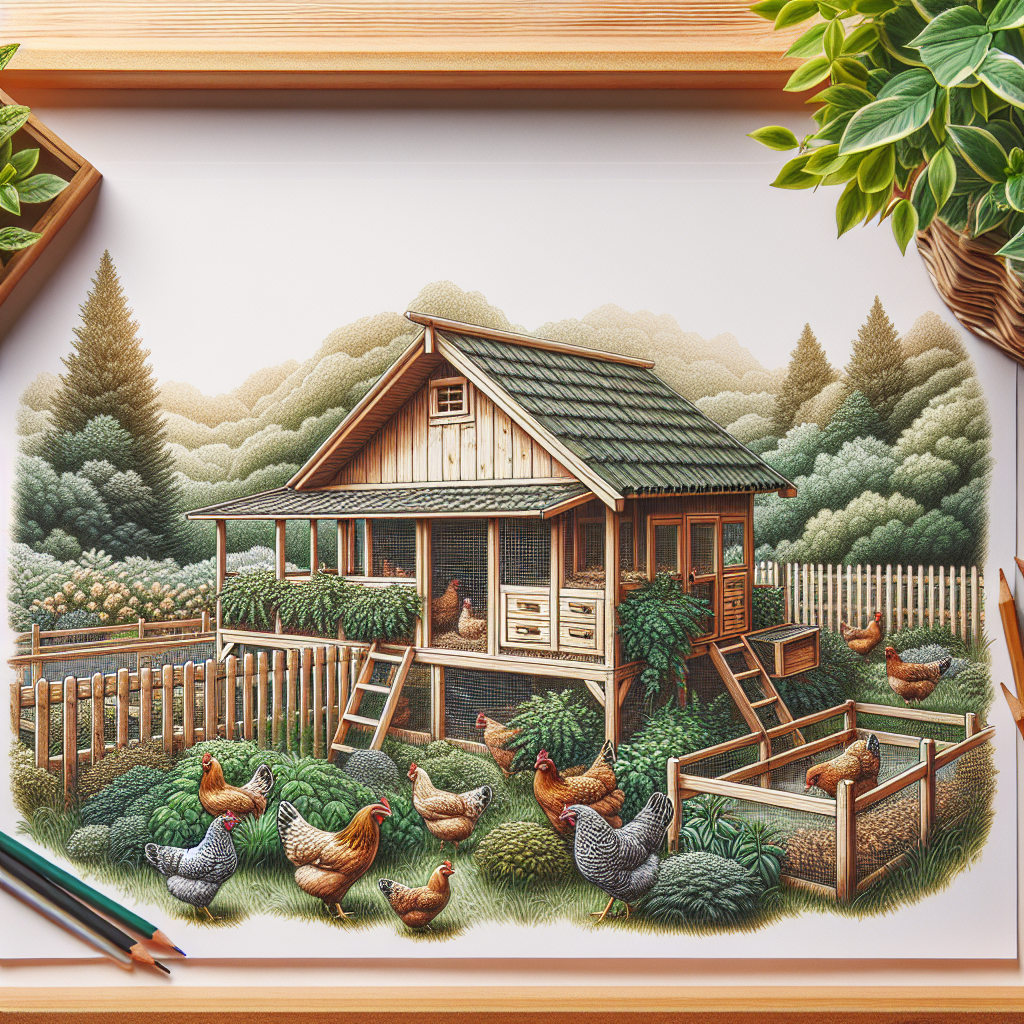As a chicken owner, ensuring the health and well-being of your flock is of utmost importance. And one crucial aspect of their welfare involves preventing and managing internal and external parasites. These pesky creatures can wreak havoc on your chickens, causing discomfort and even serious health issues. So, what can you do to protect your feathered friends from these unwelcome guests? In this article, we will explore effective strategies and practical tips to safeguard your chickens from internal and external parasites, keeping them happy and thriving.
Understanding Internal Parasites
Internal parasites are organisms that live inside the body of a host, in this case, your chickens. They can cause a range of health problems and negatively impact the overall well-being of your flock. By understanding the types of internal parasites that can affect your chickens, their lifecycle, and the signs to look out for, you can take proactive steps to prevent and manage these parasites effectively.
Types of Internal Parasites
There are several types of internal parasites that can affect chickens. Some of the most common ones include worms, such as roundworms and tapeworms, coccidia, and protozoa. These parasites can invade various organs and systems within the chicken’s body, causing issues like diarrhea, weight loss, decreased egg production, and even death if left untreated.
Lifecycle of Internal Parasites
Internal parasites have a complex lifecycle that involves multiple stages of development. Understanding their lifecycle is crucial in implementing effective control measures. Typically, the life cycle of internal parasites involves eggs or cysts being shed by an infected chicken into the environment. These eggs or cysts can then be consumed by other chickens, allowing the parasites to develop and mature inside their new hosts.
Signs of Internal Parasites
It’s essential to be vigilant and look out for signs that may indicate the presence of internal parasites in your chickens. Some common signs include abnormal droppings, weight loss, decreased appetite, decreased egg production, sluggishness, and poor feather quality. If you notice any of these symptoms in your flock, it’s important to take immediate action to prevent the parasites from causing further harm.
Preventing Internal Parasites
Prevention is key when it comes to internal parasites in chickens. By implementing certain practices, you can significantly reduce the risk of your flock getting infested.
Maintaining a Clean and Dry Coop
Providing your chickens with a clean and dry environment is crucial in preventing internal parasites. Regularly cleaning and disinfecting the coop helps minimize the risk of parasites, as it removes any eggs or cysts that could potentially infect your birds. Ensuring good ventilation and keeping the coop free from dampness also plays a significant role in deterring parasites.
Providing a Balanced Diet
A balanced and nutritious diet goes a long way in keeping your chickens healthy and less susceptible to internal parasites. Make sure to provide your flock with a high-quality feed that meets their nutritional requirements. Additionally, supplementing their diet with fresh fruits and vegetables is beneficial, as it helps boost their immune system and overall health, making them less vulnerable to parasites.
Regular Deworming Schedule
Implementing a regular deworming schedule is essential for preventing internal parasites in chickens. Consult with a poultry veterinarian to determine the appropriate frequency and type of deworming medication to use for your flock. Follow the recommended dosage and administration guidelines to ensure effective treatment. Regular deworming helps eliminate any existing parasites and prevents future infestations.
Managing Internal Parasites
Despite taking preventive measures, chickens may still become infested with internal parasites. Knowing how to manage these parasites is crucial to minimize the impact on your flock’s health.
Fecal Testing and Diagnosis
To accurately diagnose internal parasites in your chickens, fecal testing is necessary. By collecting a fresh stool sample from your birds and having it examined by a veterinarian or a laboratory, you can identify the specific parasites present in your flock. This information will guide the appropriate treatment protocols.
Administering Deworming Medications
Once internal parasites are diagnosed, your veterinarian may prescribe specific deworming medications to effectively eradicate the parasites. It’s crucial to carefully follow the instructions provided, including dosage and administration. Some deworming medications may need to be repeated over a specific period for optimal results.
Natural Remedies for Internal Parasites
In addition to conventional deworming medications, there are also natural remedies available for managing internal parasites in chickens. These remedies, such as herbs and essential oils, can have antimicrobial and antiparasitic properties. However, it’s important to consult with a poultry veterinarian before using any natural remedies to ensure they are safe and effective for your flock.
Understanding External Parasites
External parasites are organisms that live on the outside of the host’s body, in this case, your chickens. These parasites can cause various problems, such as skin irritation, feather damage, anemia, and transmission of diseases. Understanding the types of external parasites, their lifecycle, and the signs they leave behind is essential in effectively preventing and managing them.
Types of External Parasites
There are several types of external parasites that can affect chickens. The most common ones include chicken mites, chicken lice, fleas, ticks, and mites. These parasites can infest the feathers, skin, and combs of your chickens, causing discomfort and potential health issues.
Lifecycle of External Parasites
Similar to internal parasites, external parasites also have a lifecycle that involves multiple stages of development. Understanding their lifecycle helps in formulating effective control strategies. Typically, external parasites lay eggs or deposit larvae on the host’s body or in the environment. These eggs or larvae then hatch or develop into adult parasites that feed on the chicken’s blood or tissues.
Signs of External Parasites
To effectively manage external parasites, it’s crucial to be able to identify the signs they leave behind. Some common signs of external parasites in chickens include feather loss, feather damage, skin lesions or irritation, excessive scratching, restlessness, and decreased egg production. It’s important to regularly inspect your flock for any signs of infestation and take prompt action if necessary.
Preventing External Parasites
Prevention is key when it comes to external parasites in chickens. By implementing certain preventive measures, you can reduce the risk of your flock getting infested.
Regular Coop Cleanings
Keeping your chicken coop clean and free from debris is vital in preventing external parasites. Regularly removing droppings, old bedding, and any other materials that may harbor parasites helps minimize their population. Additionally, cleanliness discourages external parasites from taking hold and infesting your chickens.
Providing Dust Baths
Dust baths are an essential part of a chicken’s natural behavior and serve as a mechanism to control external parasites. Providing a designated area where your chickens can take dust baths helps them maintain good hygiene and rids their feathers of any potential parasites. Provide a suitable dust bath area with fine sand, diatomaceous earth, or wood ash for your chickens to enjoy.
Implementing Predator Control Measures
Predators, such as wild birds, rodents, and other animals, can indirectly introduce external parasites to your flock. Implementing predator control measures, such as secure fencing, netting, and removing food sources that attract predators, helps minimize the risk of external parasites being brought into your coop.
Managing External Parasites
Despite preventive measures, external parasites may still find their way to your chickens. It’s important to know how to manage infestations effectively.
Inspecting and Treating Affected Areas
Regularly inspect your chickens for signs of external parasites, such as feather loss or skin irritations. If you discover any affected areas, take immediate action to treat them. Gently parting the feathers and using a magnifying glass can help you spot tiny parasites or their eggs. Treat the affected areas as recommended by a poultry veterinarian or by using appropriate topical treatments.
Administering Topical Treatments
There are various topical treatments available to effectively manage external parasites in chickens. These treatments can come in the form of sprays, powders, or spot-on applications. Follow the instructions provided by the manufacturer and consult with a poultry veterinarian if needed to ensure the safety and efficacy of the treatment.
Natural Remedies for External Parasites
In addition to conventional treatments, there are natural remedies that can help manage external parasites in chickens. Some natural remedies include essential oils, herbal sprays, and diatomaceous earth. However, it’s important to consult with a poultry veterinarian before using any natural remedies to ensure they are safe and appropriate for your chickens.
Identifying and Treating Common Parasites
Understanding common parasites that affect chickens and their specific characteristics is crucial in effective identification and treatment.
Chicken Mites
Chicken mites are tiny, parasitic arthropods that infest the feathers and skin of chickens. They can cause severe irritation and discomfort to the birds. Common signs of chicken mite infestation include intense itching, feather loss, pale combs, and anemia. Treatment involves using appropriate insecticides and dusting affected areas with diatomaceous earth.
Chicken Lice
Chicken lice are wingless insects that live on the feathers of chickens and feed on their blood or skin debris. Infestations can lead to feather damage and cause the birds to become weak and anemic. Signs of chicken lice infestation include feather ruffling, reduced egg production, and pale combs. Treatment involves using appropriate insecticides and dusting affected areas with diatomaceous earth.
Roundworms
Roundworms are common internal parasites that affect chickens’ digestive systems. They can cause weight loss, diarrhea, and poor growth rates. Fecal testing is usually needed to diagnose roundworm infestation, and treatment involves using appropriate deworming medications as prescribed by a poultry veterinarian.
Tapeworms
Tapeworms are flat, segmented worms that infect the intestines of chickens. They can cause nutrient deficiencies, weight loss, and decreased egg production. Fecal testing is necessary to diagnose tapeworm infestation, and treatment involves using appropriate deworming medications as prescribed by a poultry veterinarian.
The Importance of Biosecurity
Maintaining good biosecurity practices is essential in preventing and managing parasite infestations in your flock.
Isolating New Birds
When introducing new birds to your flock, it’s important to isolate them for a period of time before integrating them with existing chickens. This quarantine period allows you to observe the new birds for any signs of parasites or other diseases and prevents potential transmission to the rest of the flock.
Quarantine Procedures
Implementing proper quarantine procedures for new birds involves providing separate housing, feeding, and watering equipment. During this period, regularly monitor the new birds for any signs of parasites or diseases. Consult with a poultry veterinarian for specific recommendations on quarantine procedures.
Controlling Wild Bird Access
Wild birds can potentially introduce parasites and diseases into your chicken coop. Implementing measures to prevent wild bird access, such as secure fencing and netting, helps minimize the risk of infestation. Regularly inspect your coop for any potential entry points and take action to reinforce them if needed.
Regular Health Monitoring
Keeping a close eye on your flock’s health is essential in detecting potential parasite infestations early and taking appropriate action.
Observing Chicken Behavior
Regularly observe your chickens’ behavior, paying attention to any changes in activity levels, appetite, or social interactions. The presence of parasites can cause behavioral changes, such as excessive scratching, restlessness, or abnormal aggression.
Performing Routine Check-ups
Perform routine physical examinations of your chickens, checking for any signs of external parasites or abnormal skin conditions. Parting the feathers and examining the skin closely can help detect any potential infestations. Additionally, monitor the condition and quality of their feathers, as external parasites can cause feather damage and loss.
Keeping Records of Health Issues
Maintain accurate records of any health issues observed in your flock, including any signs of parasite infestations. This information helps you track trends, identify recurring problems, and enables you to implement appropriate prevention and treatment strategies. Consult with a poultry veterinarian for guidance on record-keeping and monitoring protocols.
Consulting a Veterinarian
Sometimes, professional help may be necessary to effectively prevent and manage parasite infestations in your chickens.
When to Seek Professional Help
If you notice severe infestations, persistent health issues, or if your preventive measures aren’t yielding results, it’s important to seek professional help. A poultry veterinarian has the expertise to diagnose and treat parasite infestations and can provide guidance on specific preventive measures for your flock.
Choosing a Poultry Veterinarian
When selecting a poultry veterinarian, consider their experience and knowledge in poultry health management, including parasite prevention and treatment. Look for a veterinarian who is familiar with the specific challenges and best practices for chicken health in your region.
Veterinary Treatments and Medications
A poultry veterinarian can prescribe appropriate treatments and medications to effectively manage parasite infestations in your chickens. Follow their advice and instructions for administration carefully to ensure the best possible outcome. Additionally, consult with your veterinarian regarding any concerns or questions you may have about the use of these treatments in your flock.
In conclusion, by understanding the types of internal and external parasites that can infect your chickens, their lifecycles, and the signs they leave behind, you can take proactive measures to prevent and manage these parasites effectively. Implementing good biosecurity practices, maintaining regular health monitoring, and consulting with a poultry veterinarian when needed are essential in ensuring the health and well-being of your flock. With proper care and attention, you can minimize the impact of parasites on your chickens and enjoy a thriving and healthy flock.




